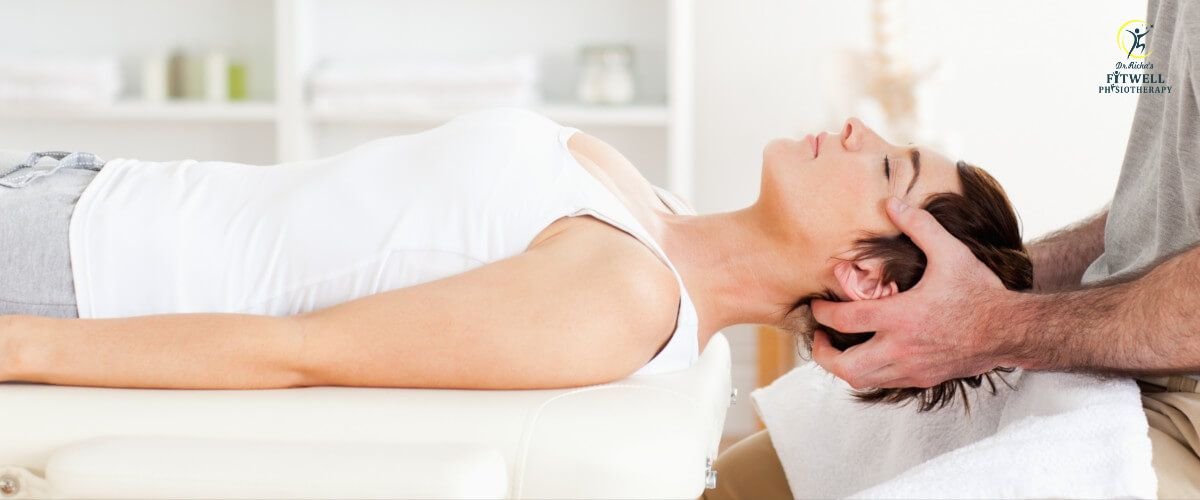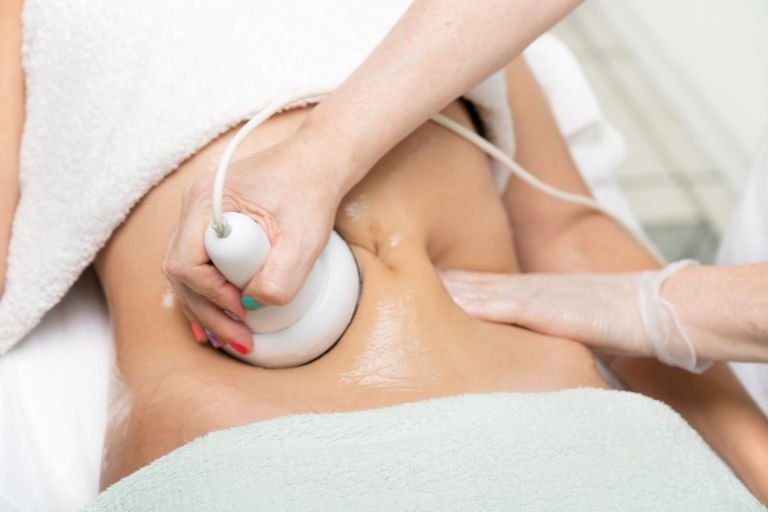- Fitwell Physiotherapy
Vestibular Rehabilitation

Vestibular rehabilitation is a specialized form of therapy designed to help individuals overcome symptoms related to vestibular disorders, which affect the inner ear and balance system. These disorders can lead to symptoms like vertigo, dizziness, imbalance, and nausea, significantly impacting an individual’s quality of life. Vestibular rehabilitation aims to address these symptoms through targeted exercises and techniques tailored to each patient’s specific needs.
Please submit your details below.
Types of Vestibular Rehabilitation:
Canalith Repositioning Maneuvers (CRM): Also known as the Epley maneuver, this technique is used to treat benign paroxysmal positional vertigo (BPPV). It involves a series of head movements to reposition displaced calcium crystals in the inner ear.
Habituation Exercises: These exercises aim to desensitize the vestibular system to certain movements or stimuli that trigger symptoms. They involve repeated exposure to specific movements or positions that provoke dizziness or vertigo until the brain habituates and the symptoms diminish.
Gaze Stabilization Exercises: These exercises focus on improving gaze stability during head movements by training the eyes to remain fixed on a target despite head movements. This helps reduce symptoms such as oscillopsia (blurred vision with head movement) commonly associated with vestibular dysfunction.
How Vestibular Rehabilitation Is Performed:
Vestibular rehabilitation is typically conducted by a physical therapist specialized in vestibular disorders. The therapist begins by conducting a comprehensive assessment to identify the specific deficits and symptoms experienced by the individual. Based on this assessment, a tailored treatment plan is developed, which may include a combination of exercises targeting different aspects of vestibular function. These exercises are usually performed in-office under the guidance of the therapist, and the individual may also be prescribed home exercises to reinforce the gains made during therapy sessions.
Contraindications:
While vestibular rehabilitation is generally safe and effective, there are certain contraindications to consider, including:
- Recent head or neck injury
- Unstable medical conditions
- Severe cardiovascular problems
- Certain eye conditions
- Active Meniere’s disease or acute labyrinthitis
Before starting vestibular rehabilitation, it’s essential for individuals to undergo a thorough evaluation by a healthcare professional to ensure that the treatment is appropriate for their condition and medical history.
What to Expect:
During vestibular rehabilitation, individuals may initially experience an increase in symptoms such as dizziness or nausea as they adapt to the exercises. However, with consistent practice and gradual progression, these symptoms typically improve over time. The duration of treatment varies depending on the severity of the vestibular dysfunction and the individual’s response to therapy. Some people may experience significant improvement within a few weeks, while others may require several months of ongoing therapy.
Benefits of Vestibular Rehabilitation:
- Reduced Symptoms: Vestibular rehabilitation can help alleviate symptoms such as dizziness, vertigo, imbalance, and nausea, improving overall quality of life.
- Improved Balance and Stability: By targeting specific vestibular and balance-related mechanisms, rehabilitation exercises can enhance balance control and reduce the risk of falls.
- Enhanced Functional Capacity: Individuals who undergo vestibular rehabilitation often experience improvements in their ability to perform activities of daily living, work tasks, and recreational activities.
- Preventative Effects: Regular participation in vestibular rehabilitation can help prevent symptom recurrence and promote long-term vestibular health.
Overall, vestibular rehabilitation is a valuable therapeutic approach for individuals struggling with vestibular disorders, offering a path to symptom relief, improved function, and a better quality of life. However, it’s essential to work closely with a qualified healthcare professional to ensure safe and effective management of vestibular symptoms.
Frequently Asked Questions
Related Therapies
How Fitwell Physiotherapy Can Help?
Dr. Richa’s Fitwell physiotherapy has an extensive team of physiotherapists all within their own specialist areas of physiotherapy. Whatever your condition, we guarantee that we will have the best physiotherapist for you. We assess, diagnose, plan, cure and care for you.
Fitwell Physiotherapy Clinic, Pune provides you best physiotherapy treatment in Kharadi, pune. We also serve Chandan Nagar, Vadgaon Sheri, Keshav Nagar, Wagholi & nearby Areas in Pune. We are experts in treating Neck Pain, Hand Pain, Back Pain, Lower Back Pain, Knee Pain, Stiff Neck, Sciatica, Arthritis, Stroke Paralysis & Post Surgical Rehab.
We provide Specialized physiotherapy treatments in Sports Injuries, Pre and post Surgery, Neurologic, Pediatric, Chronic Pain/Fatigue, Rheumatology, Women’s Health, Men’s Health, Ergonomics, Vestibular, Amputees & all sort of Pain treatment and lifestyle conditions.



























